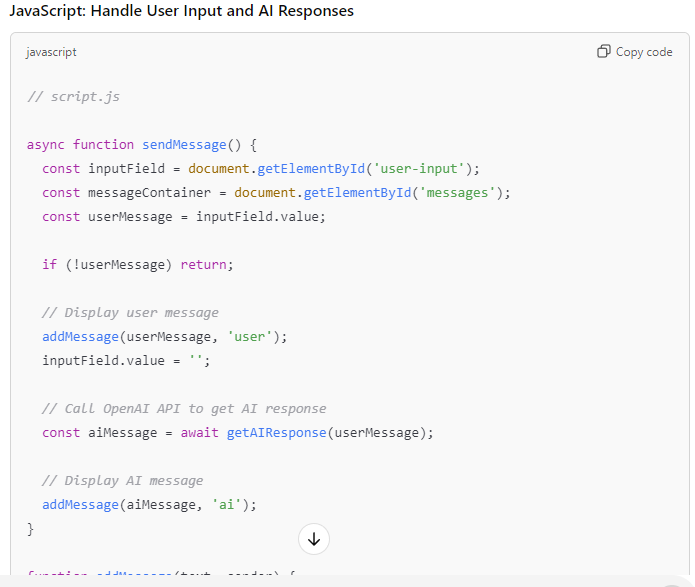Generative AI took the world by storm. The buzz around it and its usage is the fastest and most powerful we have ever seen.
Some even call it more important than the discovery of fire! While it’s too early to say for sure, from what we observe, it’s very promising.
So, the question is: which generative AI technologies are truly to change the world?
Based on my observations and personal involvement with various AI driven products, here are the top 10 most impactful generative AI technologies.
What is Generative AI?
Before we proceed, let’s define what generative AI is.
Generative AI refers to a type of artificial intelligence that can create content, such as text, images, music, videos, or even programming code, using complex algorithms and machine learning models.
It allows machines to learn patterns and generate new and meaningful outputs from these learned patterns.
It’s the same technology behind the latest advancements in chatbots, content generation, and even creative arts.
The example companies, besides ChatGPT, are MidJourney for generative images, ElevenLabs for voice, Copilot for code, and many more!
Now, let’s dive in!
1. Content Creation and Marketing
Content creation and marketing are fields where generative AI is already having a profound impact. Tools like ChatGPT, Anthropic, and Google Gemini are helping businesses create marketing copy, blog posts, and even social media content.
For example, Google and Facebook have integrated generative AI to assist with ad creatives and optimization.
Google’s Performance Max campaigns use AI to generate multiple ad variations, while Facebook’s Advantage+ campaigns leverage AI to automatically optimize ads for better performance.
AI-driven content generation allows marketers to quickly create and test different versions of ads, personalize messages for different audiences, and optimize campaigns in real-time.
This not only saves time but also helps companies engage more effectively with their target audiences, ultimately driving better results.
2. Natural Language Programming
Generative AI is revolutionizing the world of programming.
Platforms like Microsoft’s Copilot, Replit, and others have made it possible to generate code snippets, debug, and even create entire applications using natural language instructions.

The future of programming could see a significant reduction in the need for specialized programming knowledge, making it possible for anyone – regardless of their technical background – to build software.
This democratization of programming could unlock a new wave of innovation, as more people will be able to bring their ideas to life without needing extensive coding skills.
As the matter of fact, Jensen Huang, NVIDIA CEO suggested that the knowledge of programming will no longer be necessary.
“It is our job to create computing technology such that nobody has to program. And that the programming language is human, everybody in the world is now a programmer. This is the miracle of artificial intelligence,” he said. Watch video for more insights.
3. AI Agents
AI Agents are essentially programs that use artificial intelligence to perform tasks, interact with the environment, and achieve specific goals.
Imagine needing to book a flight for an upcoming trip, pay for it, and send a confirmation email – all done by simply instructing an AI agent in natural language.
AI agents are like having your very own digital assistant that can work autonomously until it accomplishes the given task.
They remind me of tools like Zapier but far more advanced, as they not only automate tasks but also adapt and respond to the situation in a more human-like manner.
Tech giants like Google, Microsoft, Anthropic, and OpenAI are heavily invested in developing AI agents that could transform productivity and automation in our daily lives.
4. Personalized Education
Education is another sector that is ripe for disruption, and generative AI is leading the way. AI-driven platforms like Duolingo have already demonstrated how generative AI can make learning fun and effective.
Generative AI could provide each student with their own personalized tutor, adapting lessons to suit individual learning styles and paces.
While the technology exists, education is a heavily regulated sector, and it will take time for widespread adoption.
However, the potential for AI to make education more accessible and personalized is incredibly exciting.
Example is Khanmigo, an AI-powered tutoring tool developed by Khan Academy.
Khanmigo leverages generative AI to provide personalized tutoring experiences to students. It can answer questions, help solve problems, and guide students through their studies interactively, mimicking the experience of having a one-on-one tutor.
This technology aims to make learning more accessible and engaging, adapting to each student’s unique needs.
5. Humanoid Robots
Humanoid robots are not exactly a new concept; companies like Boston Dynamics have been working on them for years.
However, the rise of generative AI has drastically accelerated the development of more capable humanoid robots. A prime example is Tesla’s Optimus, an ambitious project aimed at creating a general-purpose humanoid robot.
Tesla plans to scale production to over a million units per year, with the goal of bringing the cost of each robot down to around $20,000 – comparable to the price of a small car.
Humanoid robots equipped with generative AI have the potential to revolutionize sectors like healthcare, elder care, manufacturing, and beyond by providing adaptable, intelligent physical assistance.
6. Autonomous Transportation
Autonomous transportation is another field where generative AI is making significant strides.
While self-driving technology has been around for some time – with companies like Google and Tesla pioneering this space – generative AI is bringing us closer than ever to fully autonomous transportation.
Tesla’s robotaxis and self-driving trucks, as well as autonomous drones, are examples of how generative AI is being used to improve decision-making and navigation.

The ability of AI to learn from vast datasets and simulate countless driving scenarios means that we’re on the cusp of seeing safe, reliable, and widespread autonomous transportation options.
7. Personalized Entertainment
The entertainment industry is one of the sectors most visibly impacted by generative AI. It began with text content generation, followed by image generation using tools like Stable Diffusion. Today, AI can create music, videos, and even video game content.
We’re rapidly moving toward a future where personalized movies, music, and games become mainstream. Imagine creating your own movie with actors of your choosing or constructing a video game using simple natural language commands.
While there are concerns from the creative community about the impact of AI on artists and actors, it’s likely that AI-generated content will eventually become an accepted norm, blending human creativity with machine efficiency.
AI-generated celebrities could become just as famous as real ones, with the potential to even earn significant revenue!
8. Personalized Healthcare
AI has already been in use in healthcare for years, but generative AI takes it even further.
By adding reasoning capabilities, AI can assist in accelerating research and finding solutions for complex diseases.
Generative AI models can analyze medical literature, generate new hypotheses, and help discover potential treatments faster.
One of the most fairly recent and exciting technologies is Google’s Med-PaLM 2, an AI model designed to answer medical questions and provide insights from vast amounts of medical data.
In mental health, AI-powered chatbots and assistants are being developed to provide personalized support, helping people manage stress, anxiety, and other issues in a more accessible way.
Generative AI has the potential to make healthcare more personalized, efficient, and widely available.
9. Virtual and Augmented Reality (VR/AR)
While VR and AR technologies have been around for some time, they are still considered bulky and expensive.
Generative AI could be the key to making these technologies more practical and affordable. Meta recently introduced Orion, a new AR glasses product that promises to be more compact and elegant than previous versions.

These type of devices like will replace smartphones, allowing users to communicate, work, and interact with digital content in an immersive AR/VR environment.
This could significantly enhance the way we interact with information and each other.
10. Digital Finance
Generative AI is also making waves in the finance industry, particularly in developing sophisticated algorithms for cryptocurrency trading, risk assessment, and financial planning.
AI is already being used to create investment strategies and analyze market trends.
For instance, JPMorgan has developed an AI assistant named “IndexGPT“, recently launched by JPMorgan for its 60,000 employees. IndexGPT is designed to help with financial insights, answer questions, and assist in executing trades, providing precision and optimizing profits for clients.
Similarly, fintech startups are using AI-driven algorithms to predict stock price movements and assist individual investors in making informed decisions.
As generative AI continues to evolve, it will likely play a key role in accelerating the shift towards digital currencies and providing more personalized financial services.
AI can help individuals and businesses make better financial decisions by analyzing large datasets and generating actionable insights.
Wrapping Up
Generative AI is transforming industries across the board, from healthcare and education to transportation and entertainment.
These technologies are not only making our lives easier but also reshaping the way we interact with the world.
While we’re still in the early stages, the potential for generative AI to change our lives is immense.
As these technologies continue to evolve, we can expect even more innovations that will push the boundaries of what is possible.
Contact us to share your experience, insights, and upcoming trends in generative AI technologies!
Vladimir

